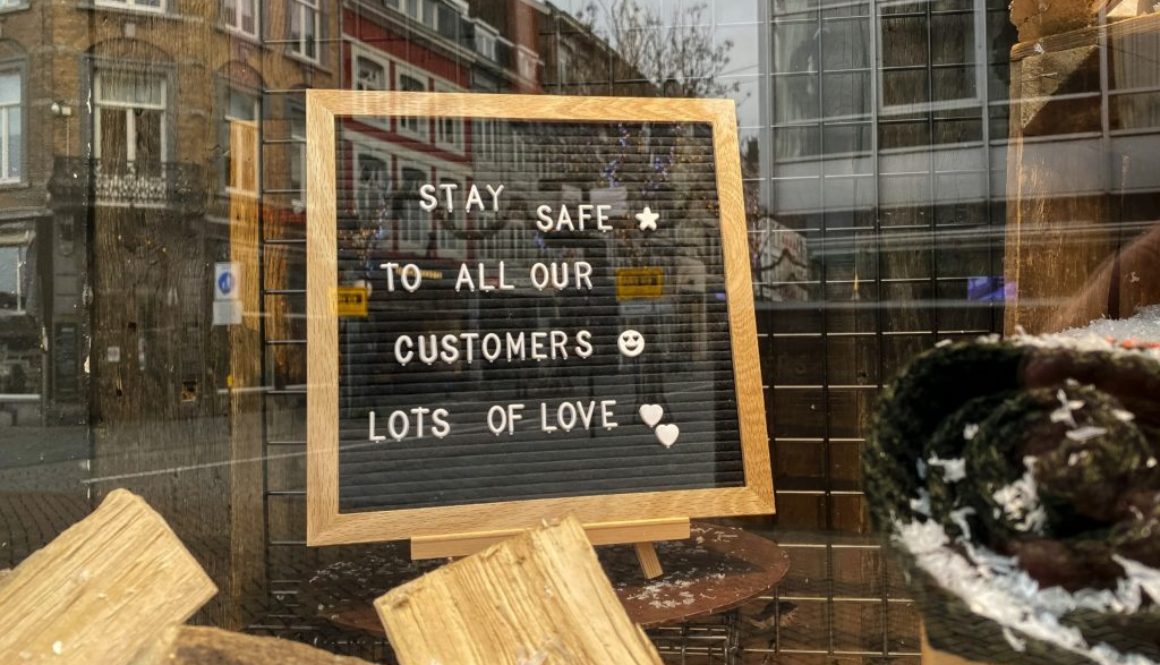
infinitemarketing
Posts by Adriana Dea Zubi:


The Power of Social Media Advertising
It’s no secret that social media is at the forefront of marketing right now, and there is no sign of it slowing down anytime soon.
However, are you genuinely aware of the power that social media advertising can have on your business? The truth is, there are so many opportunities social media can bring your way if you understand how to utilise it effectively.
Below, we’re sharing our thoughts on the power of social media and how you can make the most of it for your business.
# 1 Reaching Potential Customers Far And Wide
The potential reach with social media advertising is genuinely incredible. There really is no limit when it comes to the number of prospective customers you can impact as well as the existing customers that already follow you.
By integrating all of your social platforms, you can start building your brand awareness and quickly make your business one that stands out and is recognisable to customers. The more you “show up” on social media, the more people will get familiar with your brand, and a relationship of trust will form. The other excellent possibility that social media allows us is the ability to reach people regardless of location. You can target customers in different countries and cities and form audiences in these places without leaving where you are, saving you money and time. You can also customise your audience to target specific ads to certain groups only. This can help you to pinpoint who sees what. These specifics and many others can all be selected by you and will be extremely beneficial for the marketing campaign or ads you are running.
#2 Customer Input At Your Fingertips
While traditional advertising methods made it more of a challenge to communicate with customers and took longer to receive any feedback, the instantaneous aspect of social media gives you the power to share directly with your customer base and get their input from them individually.
One of the most fundamental reasons brands do, and should, take advantage of social media’s truly social aspect is that it offers you the opportunity to hear exactly what your customers have to say, without any information getting lost or misunderstood.
Having this open communication channel between brands and consumers makes it a lot easier to form trust and a favourable brand reputation among customers.
# 3 The Power To Establish Authority
Following on from customer interaction, the stronger and more evident your presence on social media, the easier it will be for you to establish your authority.
Because of social media’s rise to extreme popularity, it has become the go-to place for customers to either rave about or complain about a specific business. In this case, you want to be prompt in your response time, whether the feedback is positive or negative. Customers and other social media users watch what brands do and how you react can be scrutinised or praised.
Everything you do on your social channels will add to how you are seen as an authority in your field. The creativity and freedom found on social media mean that you can genuinely position yourself as a true leader and quickly attract many new followers with the potential to become paying customers.
# 4 Staying On Trend And Refueling Your Creativity
Social media is the perfect place to ensure you are on the right path regarding what’s popular and what is not. Whether you use hashtags to find the trending topics or check up on what competitors are doing, the useful ways in which you can remain relevant are right there for your benefit.
If you need some inspiration for upcoming campaigns or product launches, etc., social media can also be an effective way to gain some inspiration and give you a competitive edge.
Again, you can interact with your followers to find out exactly what they’d like to see next. Use the features available to you for the success of your business.
As you can see, social media has some extreme power in helping a business grow and succeed. By using it effectively and giving various techniques or strategies a try, you will soon figure out what works best for your business. So, if you’re not on any social platforms, what are you waiting for? Now is the time!

Visual Brand Identity and Your Business
First impressions are everything when introducing your company to customers or target audience. You will want them to remember you by creating branding unique to your company. Your visual brand identity works at the forefront of your business and is the first way your brand communicates with your customers using logo, brand colours and fonts.
Why is it essential to have a brand strategy before creating our visual identity?
To envision your branding, you must have a strong brand strategy. This purpose is to understand your brand inside and out thoroughly. There is no point in moving forward with an idea if you don’t have the research behind it – it’s a recipe for disaster!
The ultimate goal is to make your company’s personality and values shine visually, creating an emotional connection between the consumer and your brand. However, it’s important to note that before getting stuck into creating your visual identity, you need to have your brand strategy complete.
How to use visual branding to connect with your audience
Visual branding is made up of a series of design elements which include; colours, shapes, typography, materials and functionality to create the overall brand logo, fonts, and brand colours. When making these graphic elements, you will use them across videos, social media posts, content strategy, and brand awareness. This means you should thoroughly research, test and develop your visual brand strategy to ensure that you are speaking to your core customer.
#1 Brand Purpose
What is the purpose of your company? For example, are you providing a service? Products? What is the ultimate reasoning for your company?
#2 Brand Vision
What does the future hold for you? Imagine the next five years. Where is your company, and what is your vision for it.
#3 Brand Values
What are your company’s core values, and what do you stand for in this world?
#4 Target Audience
Who is your product or service aimed at? Build a profile of your ideal customer, including their demographics, problems they may face and behavioural patterns.
#5 Market Analysis
How can you stand out? Take some time to research your market and discover where there are gaps. Market analysis can help you differentiate yourself from your competitors.
#6 Awareness Goals
How will your customers learn about your brand? Come up with a plan on how you will create brand awareness.
#7 Brand Personality
Humanise your brand and help your audience make a real connection with you. You can do this by making a description of your brand as if it was a human.
#8 Brand Voice
You have to talk in the language of your audience. Create a tone of voice that they can understand! This should also fit into your brand’s personality.
#9 Brand Slogan
One to remember! Your tagline should say it all. Make yourself memorable with a slogan that best describes your brand.
Once you’ve completed your brand strategy, you will understand your brand more than ever. It’ll give you a clear outline and should spark inspiration for how you see your visual identity.
Conclusion
Consider where you want to position your brand and visual identity. Are you subtle? Fierce? Playful? Your brand personality should shine massively through when it comes to anything visible. Building a solid brand strategy will lead to an even better visual identity. You’ll know if it is effective as it will attract your ideal customers.

How to use social media in order to attract more traffic to your website?
When it comes to social media, many businesses are well established in terms of using these platforms for brand recognition. However, driving traffic and ensuring conversions is not quite as simple. The basic function of social media has always been as a form of entertainment and distraction, which is why it can be a tough ask to use these channels to get people to commit and to buy, however, it is becoming more and more common and brands are restrategising in order to make the most out of these platforms.
